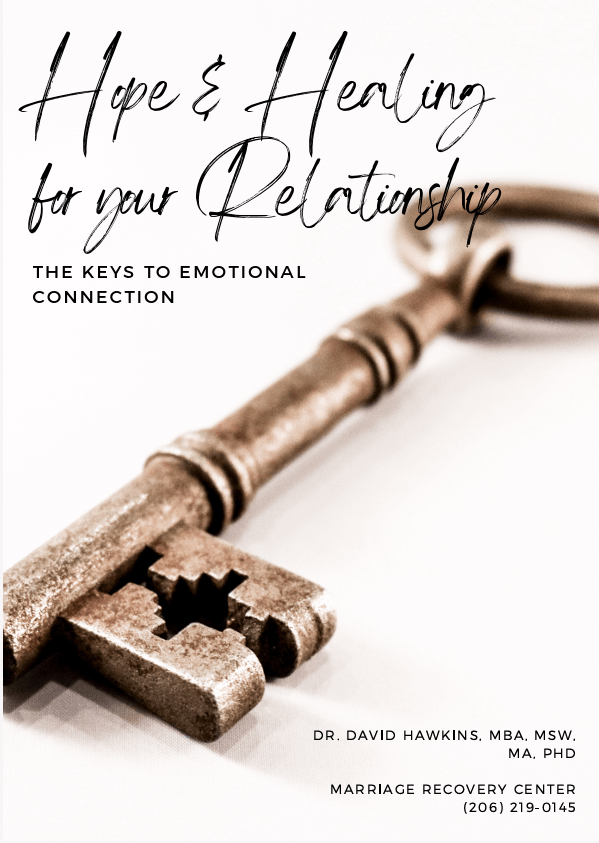Summary
- Identifying a narcissist can be simplified using the 3 Ds: Defensiveness, Dismissiveness, and Dominance. These traits often overlap, creating emotionally harmful dynamics in close relationships.
- Narcissists often deflect blame, invalidate your feelings, and seek control in relationships.
- Additional red flags include gaslighting, isolation, walking on eggshells, and shifting blame.
- Recognizing these patterns is the first step to protecting your emotional well-being and seeking support.
There is a lot of information out there on the internet on the topic of narcissism and it can get a bit overwhelming and confusing, so Dr. Hawkins has come up with a quick and simple way on how to tell if someone is a narcissist. He calls it the test of the 3 Ds – Defensiveness, Dismissiveness and Dominance – which he talks about in this video. He also developed the Narcissistic and Emotional Abuse Inventory (NEAI), a more comprehensive assessment to find out if someone is a narcissist, which you can access here: emotionalabuseinstitute.net/NEAI
How to Tell if Someone is a Narcissist: The 3 Ds of Narcissism
Narcissism is a complex personality trait that can have a significant impact on relationships. Recognizing narcissistic tendencies in someone you know can be challenging, but there are key indicators to look out for. In this article, we will explore the “3 Ds” of narcissism, which can help you evaluate whether narcissism and emotional abuse are present in your relationship.
Defensiveness: The First Red Flag
A major sign that someone may have narcissistic tendencies is defensiveness. In healthy relationships, people are open to feedback and willing to reflect on their actions. However, when someone is highly defensive, even gentle criticism can feel like an attack to them.
You might notice:
- Rationalizing or justifying their behavior when confronted.
- Blame-shifting—making it seem like everything is your fault.
- Refusing to engage in open, honest conversations.
Ask yourself: When I bring up concerns, does this person listen openly? Do they ask questions and show curiosity, or do they shut down, argue, or turn the blame on me?
In a healthy relationship, you should feel safe bringing up issues without fear of backlash.
Dismissiveness: Invalidating Your Reality
The second D, dismissiveness, can be incredibly damaging because it invalidates your thoughts, feelings, and experiences.
Dismissiveness often sounds like:
- “You’re overreacting.”
- “That’s not important.”
- “I don’t see it that way, so it must not be true.”
When someone constantly brushes off your feelings or concerns, it chips away at your self-confidence and can leave you questioning your own reality.
Take a moment to reflect: Does this person truly hear me out? Do they show understanding, or do they consistently minimize how I feel? In a loving relationship, your emotions should be acknowledged, not dismissed.
Dominance: The Need to Control
Dominance goes beyond being assertive or confident. It shows up as an overpowering need to control outcomes, people, and situations. This can be subtle or overt, but the result is often the same: you feel like your needs, opinions, and desires don’t matter.
You might hear phrases like:
- “It’s my way or the highway.”
- “I’m the one who makes the decisions here.”
- “You wouldn’t understand, just let me handle it.”
- “This is non-negotiable.”
Ask yourself: Do I feel like my voice is heard when we make decisions? Or do I feel overpowered and dismissed? In a balanced relationship, both partners should feel comfortable expressing their opinions and collaborating on decisions.
How the 3 Ds Mix Together in Toxic Relationships
These three traits often appear together, creating a toxic and emotionally draining dynamic. When defensiveness, dismissiveness, and dominance show up repeatedly, they can leave you feeling unheard, unvalued, and emotionally depleted.
Over time, these behaviors can make you question your own worth and reality. Recognizing these signs is the first step toward breaking free from this damaging cycle and protecting your emotional well-being.
Are You Seeing the Signs of

Narcissistic Abuse?
Gas-lighting, Blame-shifting. Walking on eggshells. If this feels familiar – you’re not imagining it.
Speak privately with a specialist.
Get clarity – for free.
More Signs You May Be Experiencing Narcissistic Abuse in a Close Relationship
If you’re questioning whether someone close to you might be a narcissist, especially in a marriage or intimate relationship, watch for these additional red flags:
- Gaslighting: They twist facts, making you doubt your memories or feelings. You might hear things like, “You’re imagining things” or “That never happened.”
- Walking on Eggshells: You constantly monitor your words and actions to avoid upsetting them.
- Love Bombing Followed by Withdrawal: They shower you with affection and praise, only to later pull away, leaving you feeling rejected and confused.
- Blame-Shifting: No matter the issue, somehow it always becomes your fault.
- Isolation Tactics:They subtly or directly discourage you from seeing friends and family, increasing your reliance on them.
If these behaviors feel familiar, it might be time to seek support and reflect on whether the relationship is truly healthy.
Common Misconceptions About Narcissism in Relationships
It’s easy to misunderstand what narcissism looks like in close relationships. Here are a few myths to be aware of:
- Myth: “Everyone who’s selfish is a narcissist.”
- Truth: Everyone has selfish moments. True narcissism involves ongoing, harmful patterns of behavior that consistently hurt others.
- Myth: “If they show vulnerability, they can’t be narcissistic.”
- Truth: Narcissists can appear vulnerable, but this is often used to manipulate and gain sympathy.
- Myth: “They must be charming or successful to be a narcissist.”
- Truth: Narcissists can be quiet and insecure, yet still exhibit controlling, dismissive, or manipulative behaviors.
What to Do If You Recognize These Patterns
Seeing these signs in someone close to you can be unsettling. You might feel confused, overwhelmed, or unsure about what steps to take next.
Here are some ways to begin protecting yourself:
- Trust your instincts: If something feels off, it probably is.
- Set clear boundaries: Establish what behaviors you won’t tolerate.
- Reach out for support: Talk to a trusted friend, therapist, or support group.
- Reflect on patterns: Are these behaviors consistent over time, not just occasional?
You don’t need an official diagnosis to recognize harmful behaviors that affect your well-being. Protecting your emotional health is reason enough to take action.
Final Thoughts: You Deserve Respect and Validation
If you’re noticing signs of defensiveness, dismissiveness, and dominance in your relationship, don’t dismiss your feelings. You deserve respect, validation, and open communication in all your relationships.
Recognizing these signs is the first step toward understanding your situation and taking back control of your emotional well-being. If you need support, don’t hesitate to seek help from professionals who can guide you toward healing and clarity.
You are not alone. You deserve a relationship where you feel valued, heard, and respected.
To learn how we can help, reach out to us at (206) 219-0145 or info@marriagerecoverycenter.com to speak with a Client Care Specialist
Also read: 10 Signs of an Emotionally Abusive Relationship
About Dr. Hawkins:
The internet is inundated with hyperbole and misinformation about narcissism, leaving many people confused and hopeless. Get the facts on narcissism and emotional abuse from someone who has been researching, writing about and treating narcissism and emotional abuse for over a decade.
Dr. Hawkins is a best-selling author and clinical psychologist with over three decades of experience helping people break unhealthy patterns and build healthier relationships.
He is the founder and director of the Marriage Recovery Center and the Emotional Abuse Institute which offers education, training and counseling for people who want to break free of, and heal from, emotional abuse. Whether the perpetrator of the abuse is your spouse, partner, parent, boss, friend or family member, we offer practical advice for anyone trapped in a toxic, destructive relationship.
In addition to narcissism & emotional abuse, you’ll learn about the lesser known forms of abuse, including covert abuse, reactive abuse, spiritual abuse, secondary abuse, relationship trauma and much more.:









